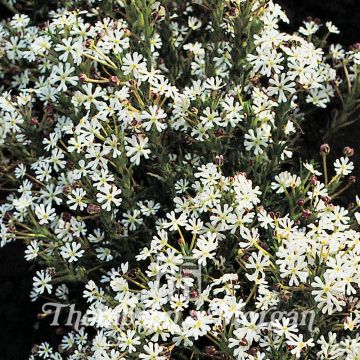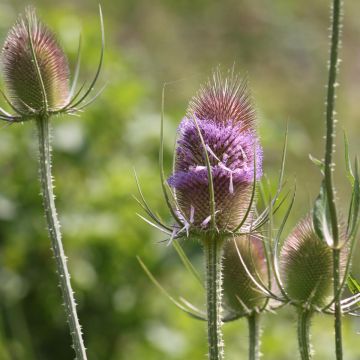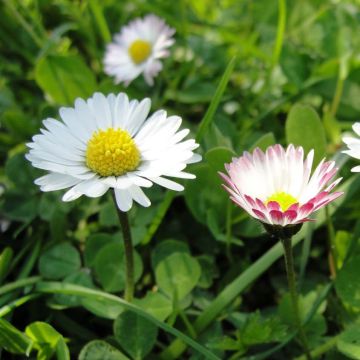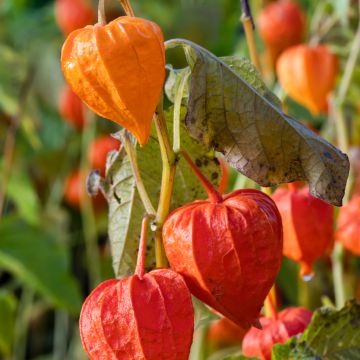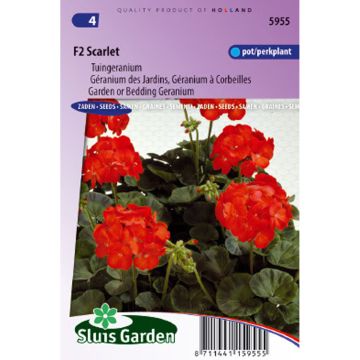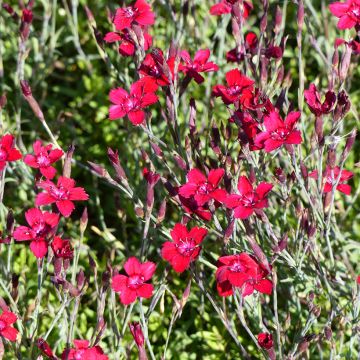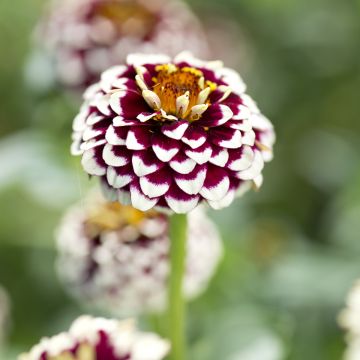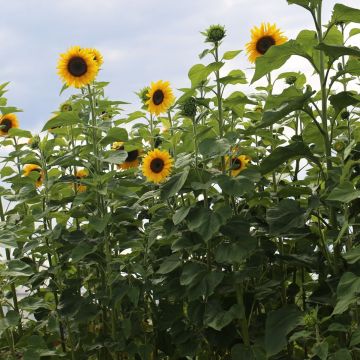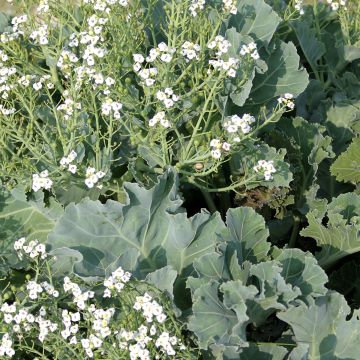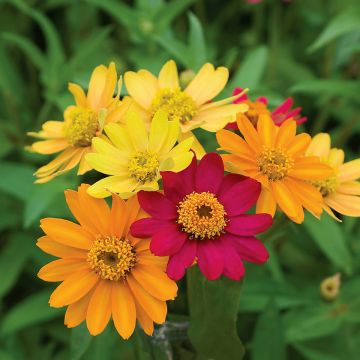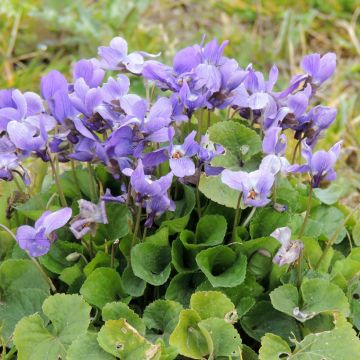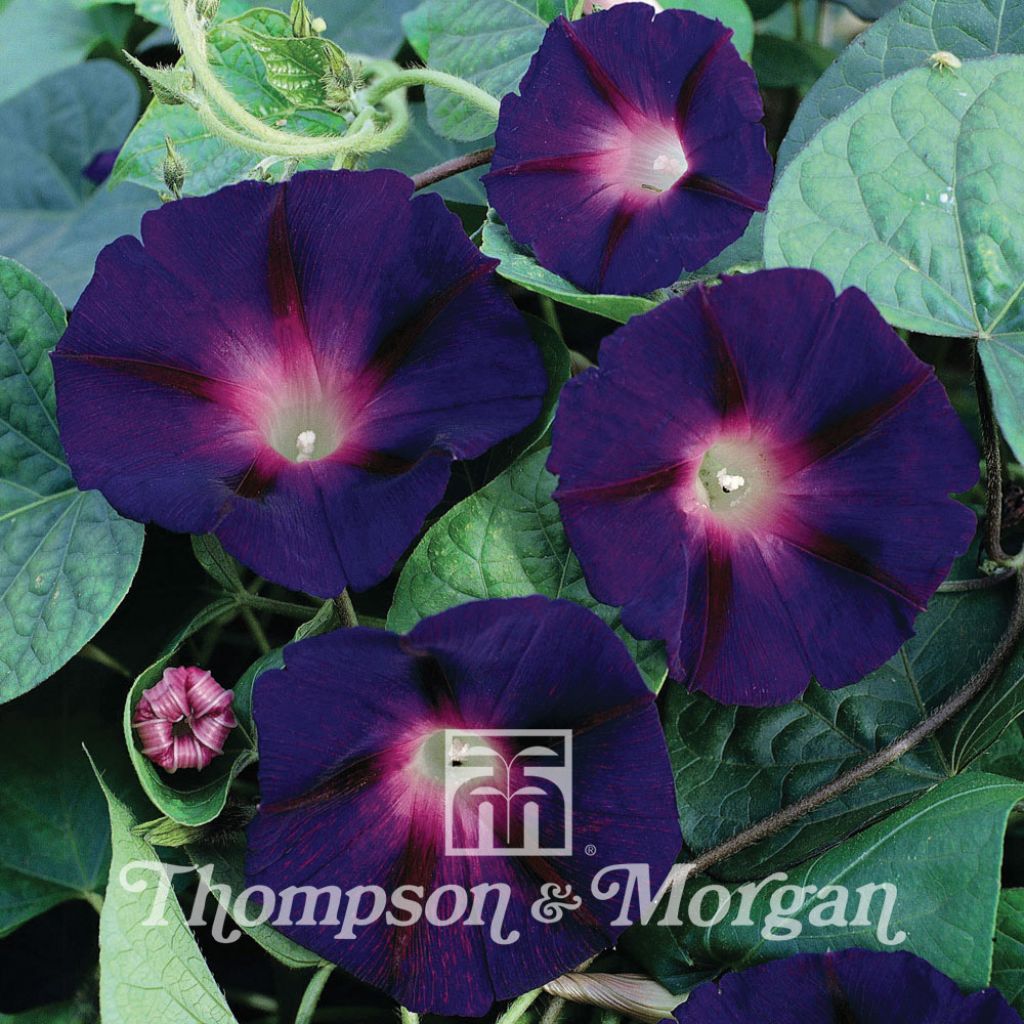

Ipomoea purpurea Star of Yelta - Morning Glory seeds
Ipomoea purpurea Star of Yelta - Morning Glory seeds
Ipomoea purpurea Star of Yelta
Morning Glory
This item cannot be shipped to the selected country
Dispatch by letter from €3.90
More information
Schedule delivery date,
and select date in basket
This plant carries a 6 months recovery warranty
More information
We guarantee the quality of our plants for a full growing cycle, and will replace at our expense any plant that fails to recover under normal climatic and planting conditions.
Seed-only orders are dispatched by sealed envelope. The delivery charge for seed-only orders is €3.90.
Does this plant fit my garden?
Set up your Plantfit profile →
Description
Ipomoea Star of Yelta, also known as Ipomoea volubilis Star of Yelta, is a flowering climber which is among the most beautiful and easiest to grow. In one season, it forms long stems loaded with fleshy buds that open into wonderful large flowers, dark purplish blue, highlighted by deep red radiating veins. Its silky trumpets play with the light and attract all eyes. It will form fantastic groundcover and cling to all available supports. This greedy but generous annual plant enjoys the sun, and loose, damp soil.
Ipomoea volubilis Star of Yelta, poetically named 'Morning Glory', is a very vigorous climbing plant from the family Convolvulaceae whose origins are lost in the tropical regions of America, probably in Mexico. Perennial with a tuberous stump, it is frost-sensitive and is grown as an annual. Its growth is very fast: it launches its long stems of 1.80m (6ft) to attack all the supports it finds within reach. The flowering is long and abundant, from July until the first frosts. Its dark purplish blue funnel-shaped corollas measure about 7 cm (3in) in diameter. They are adorned with dark red grooves radiating from the heart towards the outside of the flower. While these flowers close in the afternoon, they constantly renew themselves on the plant. The stems bear leaves from 5 to 10 cm (2 to 4in) ovate to cordiform, less commonly trilobed, of a medium green colour. Each plant produces about 100 pods filled with about 600 seeds, at the end of the season, before the first frosts.
This distant relative of the common bindweed does not withstand harsh winters. It thrives in any well-drained garden soil. Sow Ipomoea in a warm and sunny location to make the most of its flowering. You can associate it with other ephemeral climbing plants such as Sweet Peas or Climbing Nasturtiums. It voluptuously wraps itself around any support: trellis, pergola, balcony, grill, trees and shrubs... and if it doesn't find support, it will crawl along the ground. It is an ideal plant for hiding an old wall, a dead tree...
Report an error about the product description
Flowering
Foliage
Plant habit
Botanical data
Ipomoea
purpurea
Star of Yelta
Convolvulaceae
Morning Glory
Cultivar or hybrid
Other Thompson and Morgan seeds
Planting and care
From May to June, sow the Morning Glory in open ground or in a large pot. Soak the seeds in a bowl of water for 24 hours before sowing to accelerate seed germination.
Make small holes about 1 cm (0.3in) deep, spaced 50 cm (20in) to 1 m (3ft) apart. Place 4 or 5 seeds in each hole, then cover and water them.
It takes 18 days to see the first stems emerging from the ground.
To save time on flowering, you can sow your seeds in March-April in pots at a temperature of 18°C (64.4°F), then transplant your plants to the garden after the last frost.
In summer, make sure your Morning Glories do not lack water as it would harm their beautiful flowering. Water preferably in the early morning or evening. You can remove faded flowers so that the plant does not exhaust itself producing seeds. Morning Glories are so fertile that the first seeds that fall to the ground can germinate very quickly and form new young plants before winter.
The soil should not be excessively rich in nitrates, as this would promote foliage growth at the expense of flowering.
Sowing period
Intended location
-
, onOrder confirmed
Reply from on Promesse de fleurs
Flower seeds
Haven't found what you were looking for?
Hardiness is the lowest winter temperature a plant can endure without suffering serious damage or even dying. However, hardiness is affected by location (a sheltered area, such as a patio), protection (winter cover) and soil type (hardiness is improved by well-drained soil).

Photo Sharing Terms & Conditions
In order to encourage gardeners to interact and share their experiences, Promesse de fleurs offers various media enabling content to be uploaded onto its Site - in particular via the ‘Photo sharing’ module.
The User agrees to refrain from:
- Posting any content that is illegal, prejudicial, insulting, racist, inciteful to hatred, revisionist, contrary to public decency, that infringes on privacy or on the privacy rights of third parties, in particular the publicity rights of persons and goods, intellectual property rights, or the right to privacy.
- Submitting content on behalf of a third party;
- Impersonate the identity of a third party and/or publish any personal information about a third party;
In general, the User undertakes to refrain from any unethical behaviour.
All Content (in particular text, comments, files, images, photos, videos, creative works, etc.), which may be subject to property or intellectual property rights, image or other private rights, shall remain the property of the User, subject to the limited rights granted by the terms of the licence granted by Promesse de fleurs as stated below. Users are at liberty to publish or not to publish such Content on the Site, notably via the ‘Photo Sharing’ facility, and accept that this Content shall be made public and freely accessible, notably on the Internet.
Users further acknowledge, undertake to have ,and guarantee that they hold all necessary rights and permissions to publish such material on the Site, in particular with regard to the legislation in force pertaining to any privacy, property, intellectual property, image, or contractual rights, or rights of any other nature. By publishing such Content on the Site, Users acknowledge accepting full liability as publishers of the Content within the meaning of the law, and grant Promesse de fleurs, free of charge, an inclusive, worldwide licence for the said Content for the entire duration of its publication, including all reproduction, representation, up/downloading, displaying, performing, transmission, and storage rights.
Users also grant permission for their name to be linked to the Content and accept that this link may not always be made available.
By engaging in posting material, Users consent to their Content becoming automatically accessible on the Internet, in particular on other sites and/or blogs and/or web pages of the Promesse de fleurs site, including in particular social pages and the Promesse de fleurs catalogue.
Users may secure the removal of entrusted content free of charge by issuing a simple request via our contact form.
The flowering period indicated on our website applies to countries and regions located in USDA zone 8 (France, the United Kingdom, Ireland, the Netherlands, etc.)
It will vary according to where you live:
- In zones 9 to 10 (Italy, Spain, Greece, etc.), flowering will occur about 2 to 4 weeks earlier.
- In zones 6 to 7 (Germany, Poland, Slovenia, and lower mountainous regions), flowering will be delayed by 2 to 3 weeks.
- In zone 5 (Central Europe, Scandinavia), blooming will be delayed by 3 to 5 weeks.
In temperate climates, pruning of spring-flowering shrubs (forsythia, spireas, etc.) should be done just after flowering.
Pruning of summer-flowering shrubs (Indian Lilac, Perovskia, etc.) can be done in winter or spring.
In cold regions as well as with frost-sensitive plants, avoid pruning too early when severe frosts may still occur.
The planting period indicated on our website applies to countries and regions located in USDA zone 8 (France, United Kingdom, Ireland, Netherlands).
It will vary according to where you live:
- In Mediterranean zones (Marseille, Madrid, Milan, etc.), autumn and winter are the best planting periods.
- In continental zones (Strasbourg, Munich, Vienna, etc.), delay planting by 2 to 3 weeks in spring and bring it forward by 2 to 4 weeks in autumn.
- In mountainous regions (the Alps, Pyrenees, Carpathians, etc.), it is best to plant in late spring (May-June) or late summer (August-September).
The harvesting period indicated on our website applies to countries and regions in USDA zone 8 (France, England, Ireland, the Netherlands).
In colder areas (Scandinavia, Poland, Austria...) fruit and vegetable harvests are likely to be delayed by 3-4 weeks.
In warmer areas (Italy, Spain, Greece, etc.), harvesting will probably take place earlier, depending on weather conditions.
The sowing periods indicated on our website apply to countries and regions within USDA Zone 8 (France, UK, Ireland, Netherlands).
In colder areas (Scandinavia, Poland, Austria...), delay any outdoor sowing by 3-4 weeks, or sow under glass.
In warmer climes (Italy, Spain, Greece, etc.), bring outdoor sowing forward by a few weeks.




































